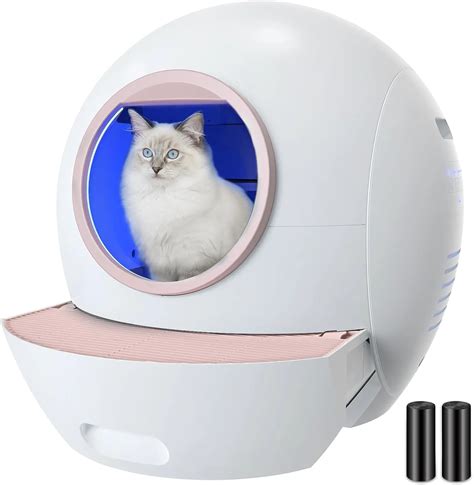Introduction
Cats are beloved companions, but their litter boxes can be a chore for pet owners. Traditional litter boxes require manual scooping, which can be tedious and unhygienic. In recent years, smart litter boxes have emerged as a potential solution, promising automated cleaning and monitoring of your cat’s waste. This guide explores the pros and cons of cat litter vs smart litter boxes to help you make an informed decision for your feline friend.

1. Traditional Cat Litter Boxes: The Tried-and-Tested Option
Cat litter has been a staple of feline hygiene for decades. It’s affordable, widely available, and offers a variety of textures and scents to suit your cat’s preferences.
Advantages:
- Cost-effective: Cat litter is relatively inexpensive, with options available for all budgets.
- Variety: There are countless types of cat litter on the market, from clay to crystal, giving you plenty of choices to find what works best for your cat.
- Easy to find: Cat litter can be found at most pet stores, grocery stores, and even convenience stores.
Disadvantages:
- Manual scooping: Traditional litter boxes require daily scooping to remove waste, which can be time-consuming and unpleasant.
- Unhygienic: Litter boxes can become breeding grounds for bacteria and odor if not cleaned regularly.
- Dust: Some types of litter, such as clay, can create dust that can irritate your cat’s respiratory system.
2. Smart Litter Boxes: The Future of Feline Hygiene
Smart litter boxes aim to revolutionize feline hygiene with automated cleaning, monitoring, and health tracking features.
Advantages:
- Automated cleaning: Smart litter boxes use sensors to detect when your cat has used the box and automatically clean it, eliminating the need for manual scooping.
- Waste monitoring: Some smart litter boxes track the weight and frequency of your cat’s waste, providing valuable insights into their health.
- Health tracking: Advanced smart litter boxes can monitor your cat’s urine pH, hydration levels, and even detect potential health issues early on.
Disadvantages:
- Expensive: Smart litter boxes can be significantly more expensive than traditional litter boxes.
- Limited availability: Smart litter boxes are not as widely available as traditional litter boxes and may only be found in specialty pet stores or online.
- Potential for malfunctions: Smart litter boxes rely on technology, which can occasionally malfunction.
3. Making the Right Choice: Consider Your Cat’s Needs
When choosing between cat litter and smart litter boxes, consider your cat’s specific needs and your own lifestyle.
- Budget: If cost is a primary concern, traditional cat litter is the more affordable option.
- Convenience: If you value hands-off cleaning and monitoring, a smart litter box may be worth the investment.
- Cat’s preferences: Some cats prefer certain types of litter texture or scent, so it’s important to choose a litter that your cat likes.
- Time constraints: If you have a busy schedule or travel frequently, a smart litter box can provide peace of mind and ensure your cat’s hygiene is taken care of.
4. Common Mistakes to Avoid When Using Cat Litter or Smart Litter Boxes
To ensure your cat’s comfort and well-being, avoid these common mistakes:
- Not cleaning the litter box regularly: Leaving waste in the litter box for extended periods can lead to odor and hygiene issues.
- Using the wrong type of litter: Some litters, such as wood chips, can be harmful to cats if ingested.
- Overfilling or underfilling the litter box: The ideal litter depth is between 2-4 inches. Too little litter can make it difficult for cats to bury their waste, while too much litter can be uncomfortable for them to dig through.
- Not providing enough litter boxes: Cats need at least one litter box per cat, plus one extra.
- Placing the litter box in an inconvenient location: Cats prefer to have a private, quiet place to do their business.
5. FAQs: Your Cat Litter and Smart Litter Box Questions Answered
-
Can I use regular cat litter in a smart litter box?
Some smart litter boxes require specialized litter, while others can use regular cat litter. Check the manufacturer’s instructions for your specific model. -
How often do I need to clean a smart litter box?
The frequency of cleaning depends on your cat’s usage and the specific smart litter box you have. Generally, most smart litter boxes will need to be cleaned every few days or weekly. -
How do I train my cat to use a smart litter box?
Most cats will naturally be curious about a new litter box. Place the smart litter box in a familiar location and allow your cat to explore it at their own pace. Some smart litter boxes come with training modes to ease the transition. -
Can I use a smart litter box with multiple cats?
Yes, many smart litter boxes can accommodate multiple cats. Some models even have sensors that can distinguish between different cats, providing personalized waste tracking.





















